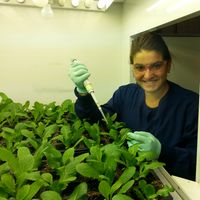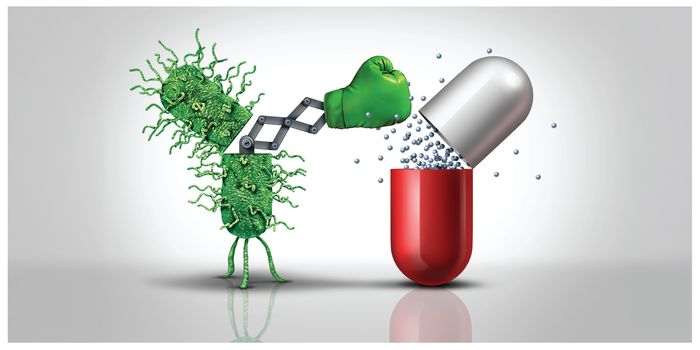Wolf Species Resistant to Prion Disease
A prion is an infectious agent responsible for several neurodegenerative diseases including Creutzfeldt-Jakob disease (CJD) in humans, scrapie in sheep and goats, chronic wasting disease in deer, and bovine spongiform encephalopathy (mad cow disease) in cows. These infectious particles are atypical microorganisms very different from bacteria and viruses. They are actually misfolded proteins that contain no DNA or RNA.
Researchers have identified an amino acid substitution on the surface of the prion precursor, called D163, which may be primarily responsible for the prion resistance of canids. Credit: Jim and Jamie Dutcher/National Geographic Creative
Following the bovine spongiform encephalopathy (BSE) outbreak in Europe during the 1990s, it was found that prions could be spread between other mammalian species including non-human primates. Experimentally, scientists were able to infect other model mammalian species including mice, rats, hamsters, guinea pigs, and blank moles with prions.
Amino acids are the building blocks of proteins. Scientists determined that the amino acid sequences from mammals that make up prions are about 85% similar to those from humans. There is a 70% similarity of opossum or wallaby species, and only 18-35% similarity of reptiles, fish and avian prion sequences to human prion sequences.
Interestingly, susceptibility to prion diseases is reportedly low for rabbits, horses, and dogs which are considered by some to be “prion resistant” species, although some will argue that this seems far-fetched. Of particular interest to scientists is the resistance and susceptibility of members of the Canidae family to prion diseases. Members of the Canidae family include wolves, foxes, jackals, dingoes, and domestic dogs.
Scientists sought to determine why Canidae species are resistant to prion diseases. They made several attempts to obtain a misfolded dog prion (PrP) using Protein Misfolding Cyclic Amplification (PMCA) in the brain tissue from dogs. Using this method, they were able to identify a single amino acid substitution on the surface of the prion precursor that may be responsible for its low incidence of misfolding.
The research, which was published this month in PLOS Pathogens, reports that the high resistance of the Canidae PrP misfolding may be related to amino acid substitution D163. Transgenic mice carrying the D163 amino acid substitution on the mouse PrP were found to be resistant to three different mouse prion strains.
Further research is warranted to determine if the D163 amino acid substitution in humans and other mammals can be used in future anti-prion therapies.
Sources: PLOS Pathogens, Scientific American









